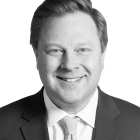Interactive Index of Economic Freedom
Hong Kong is the world's freest economy for the eighth straight year, according to the newly released Index of Economic Freedom, a joint project of The Heritage Foundation and The Wall Street Journal.
The Index is a practical reference guide to the world's economies. It includes country-by-country analyses and the most up-to-date data on foreign investment codes, taxes, tariffs, banking regulations, monetary policy, black markets, and more.
Once again the Index was released at a press conference in Hong Kong with Hong Kong Chief Executive Tung Chee Hwa. At the luncheon Mr. Tung addressed the global economy's gloomy horizon and how that will likely shrink Honk Kong's economy for a few quarters.
Yet, as the Index reports, the world is growing freer. For the eighth straight year, economic liberty has expanded. World-wide, 73 countries received better scores than last year, 53 received worse scores, and 27 remain unchanged. Of the 156 countries numerically graded in the 2002 Index, 71 are either "free" or "mostly free," while 85 are "mostly unfree" or "repressed." (To see the rankings, click here.)
What does such a calculation matter during a time of war against terrorism? According to the Index authors -- Heritage's Gerald O'Driscoll and Kim Holmes, and the Journal's Mary Anastasia O'Grady -- economic repression breeds terrorism.
By examining who's free and who's not, the authors determined that the Index could have easily been titled "A Guide to the Sources of Peace and Prosperity," or "Civilization for Dummies."
The findings of this study, now in its eighth year, have always been straightforward: Countries with the most economic freedom also have higher rates of long-term economic growth. But this year, another pattern also jumps out at the reader. Economically free countries exhibit greater tolerance and civility than economically repressed ones, where hopelessness and isolation foment fanaticism and terrorism.
The world's largest concentration of economic repression--Iran, Iraq, Syria and Libya--is also a primitive hotbed of terrorism. Egypt and Yemen are "mostly unfree," while Afghanistan, Sudan, the Democratic Republic of Congo, Angola and Somalia are all so void of a rule of law that they are impossible to analyze.
As O'Driscoll says in an Associated Press article covering the release, "Policy is everything."
Japan's rank plummeted to a tie for 35th, from 14th last year, due to slow progress in deregulation, high government spending and the persistence of trade barriers, the survey said.
Iraq and North Korea tied for last.



